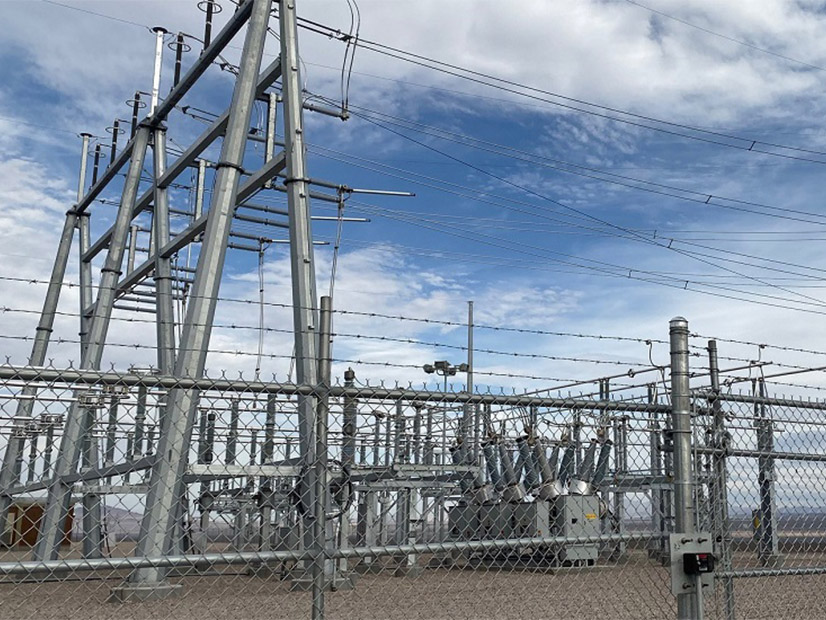
FERC dismissed rehearing requests from GridLiance High Plains and Associated Electric Cooperative Inc. in a pair of dockets involving SPP's tariff.
FERC last week dismissed as moot GridLiance High Plains’ request to rehear last year’s ruling that the utility failed to prove that certain Oklahoma facilities were eligible for cost recovery as transmission infrastructure and not distribution-related infrastructure (ER18-2358).
The commission said Thursday it was not persuaded by GridLiance’s assertions that FERC inappropriately shifted to the utility the burden of proof to demonstrate that its facilities are transmission facilities under Order 888’s seven-factor test.
GridLiance filed its request in October after FERC affirmed in part and reversed in part an administrative law judge’s previous decision in hearing and settlement procedures addressing SPP’s proposal to revise its tariff to incorporate an annual transmission revenue requirement. The change would have placed the Oklahoma Panhandle facilities into Southwest Public Service’s transmission pricing zone. (See “Commission Rejects SPP Tariff Revision, Reversing ALJ Decision,” FERC Revokes Tri-State’s Market-based Rate Authority in WACM.)
GridLiance argued that FERC erred by putting the burden of proof on the utility. It said it satisfied that burden when it showed “by a preponderance of evidence” that the facilities are transmission facilities under SPP’s tariff and were appropriately classified. The commission’s interpretation “silently subsum[es]” the seven-factor test and contradicts SPP’s filed tariff by adding certain conditions, GridLiance said.
But the commission said it was not persuaded, noting it had already rejected the same argument last year and finding that GridLiance did not provide a “persuasive reason” to revisit its decision. It continued to find that under the Federal Power Act’s burden-of-proof framework and FERC precedent that requiring Xcel Energy, SPS’ parent company, to carry the seven-factor burden of proof would “effectively shift the onus” from SPP and GridLiance.
“SPP and GridLiance … bore the ultimate burden of persuasion with respect to the filing,” FERC said. “Classification of the GridLiance facilities as transmission facilities was an integral component of that filing, and the commission has established that the seven-factor test may be applied for the purpose of that classification.”
FERC did grant GridLiance’s request for clarification, saying the facilities may continue to be classified as distribution facilities. It said the proceeding did not demonstrate that upgrades to the facilities changed their classification.
Commission Sustains Order in AECI Proceeding
The commission also rejected a rehearing request from Associated Electric Cooperative Inc. (AECI), sustaining a 2022 order that found the commission was appropriate in exercising primary jurisdiction over SPP’s sales of emergency energy during February 2021’s winter storm (EL22-54).
FERC again found that SPP properly compensated AECI and that the transactions were made under a commission-jurisdictional tariff. (See FERC Rules for SPP in AECI Dispute.)
The co-op appealed the decision in September, arguing that FERC ignored evidence of oral agreements between the parties that led to AECI responding to the SPP’s verbal requests for emergency power during the storm. It said the commission relied on “post hoc rationalizations” in labeling the emergency transactions as market transactions.
FERC disagreed, saying the SPP tariff, the AECI-SPP joint operating agreement and AECI’s market participant agreement constituted the “filed rate applicable” to energy transactions, making the co-op’s status as a neighboring BA “irrelevant” in determining whether it is bound by those agreements.
“Assum[ing] a rate would be charged other than the rate adopted by” the commission would violate the filed rate doctrine, the commissioners wrote.
The commission dismissed AECI’s argument that FERC erred in granting SPP’s petition that FERC issue a declaratory order to declare that the grid operator had paid AECI the “full, correct and only legally permissible rate” for the emergency power.
FERC reiterated that it is appropriate for the commission to exercise primary jurisdiction over the transactions as it followed precedent and has the appropriate “expertise” to make such decisions.
“The commission has special expertise interpreting jurisdictional wholesale rates like SPP’s tariff, the AECI-SPP JOA and the AECI MP Agreement because [it] oversees the rules governing wholesale markets like SPP’s Integrated Marketplace … and is therefore best positioned to understand the meaning of the terms and conditions in the filed rate,” FERC said.



